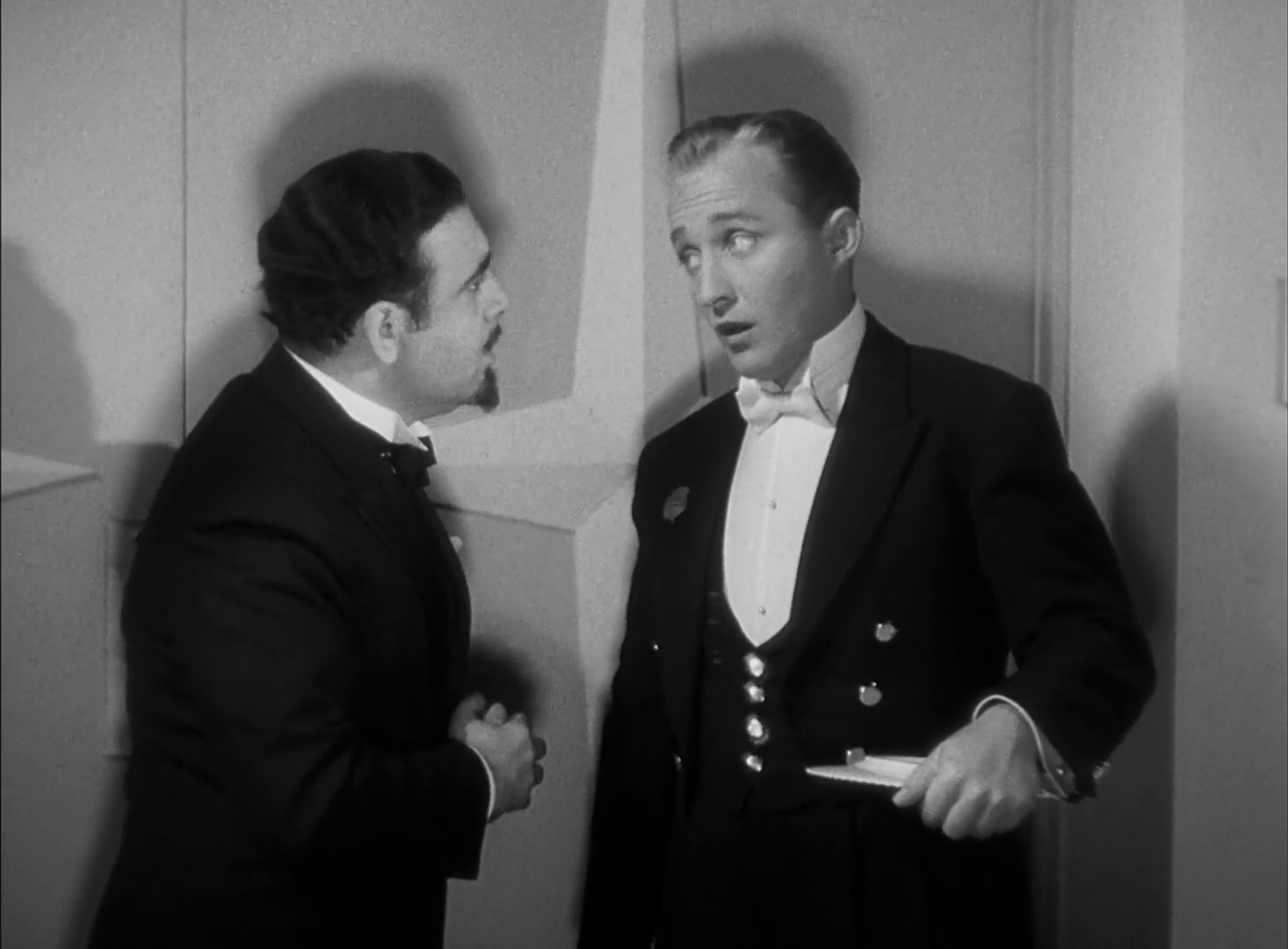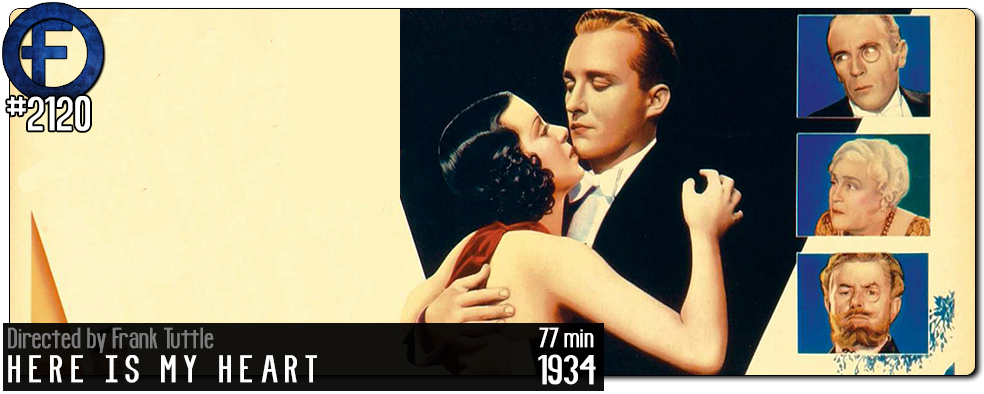Movie Review – Here Is My Heart
Principal Cast : Bing Crosby, Kitty Carlisle, Roland Young, Alison Skipworth, Reginald Owen, William Frawley, Marian Mansfield, Cecilia Parker, Akim Tamiroff, Arthur Housman, Charles Arnt, Charles C Wilson.
Synopsis: A rich and famous singer disguises himself as a waiter in order to be near the woman he loves, a European princess.
********
One part comedy-farce, another part Golden Age musical jukebox, this early Bing Crosby project swings heavily on the screen charisma of its leading man and his ability to contort his good-old-boy all-American style into a variety of charming, sophisticated romantic shlock tropes juuust enough to satisfy even the most reticent of viewers. Here Is My Heart is lightweight fare that lingers shortly in the mind and even less in the imagination, a stock-standard piece of generic rom-com guff as pleasant and mild as Crosby’s doe-eyed demeanour.
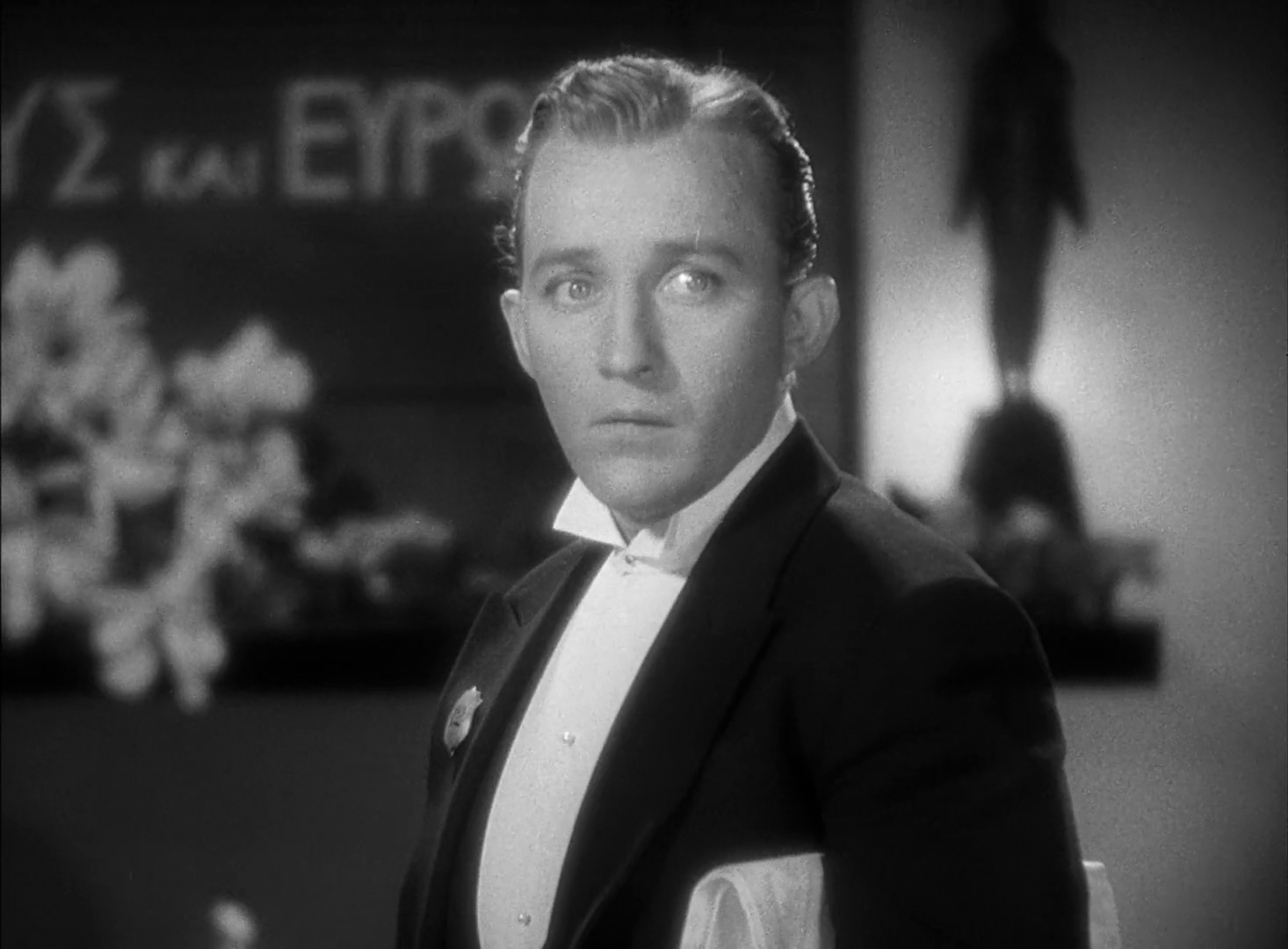
Crosby plays J Paul Jones, a successful recording artist who is spending his sudden fortune marking wild and adventurous things off a very short “bucket list”, one of which includes obtaining the second of two highly valuable pistols from an ex-Russian Princess, Alexandra (Kitty Carlisle). Inexplicably locating the Princess in a Monaco hotel, Jones initially attempts to make an offer to the Princess and her family – matriarch the Countess Rostova (Alison Skipworth), the addled Prince Vladimir (Reginald Owen) and the foppish Prince Nicholas (Roland Young) – but is rebuffed; in a moment of duplicity, Jones assumes the role of a hotel waiter in order to ingratiate himself into the Royal family’s life, whereupon he finds himself falling for the Princess (and, of course, she for him) as the hotel’s debts start to catch up with them.
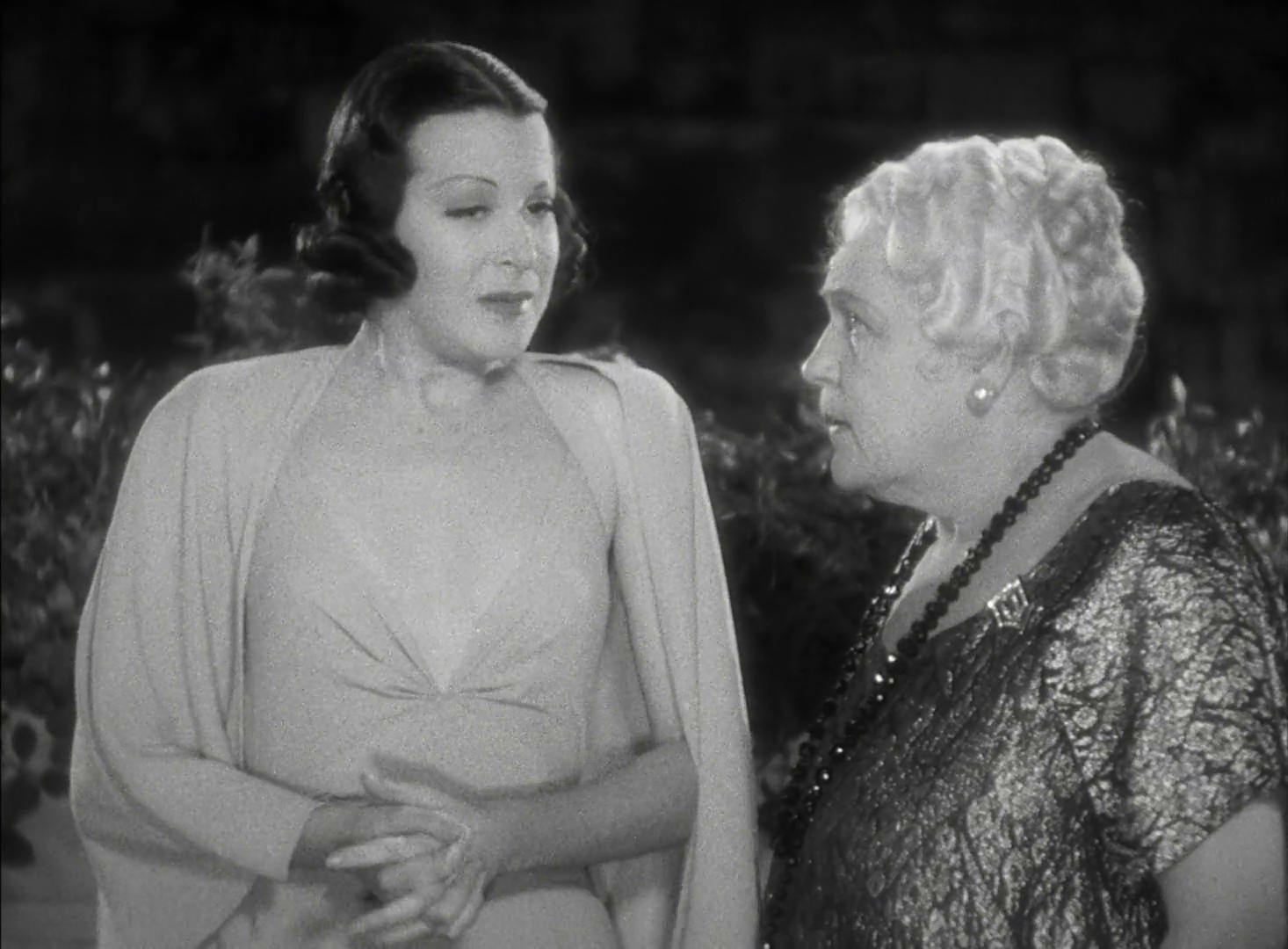
Shot entirely on the Hollywood backlot, Frank Tuttle’s creaky international adaptation of Alfred Savior’s 1924 stage play “La Grande Duchesse et le garçon d’étage”, adapted previously as a silent film in Malcolm St Clair’s 1926 silent film The Grand Duchess & The Waiter, is a genteel affair that offers pleasant laughs (or rather, chuckles, given that a lot of the film’s humour has dated considerably in the last century) and a pastoral Bing Crosby glimmering and gliding through this picture like a champion. The story hook is quite simple – Crosby’s affluent musical star character wants to buy something from a snooty Eurotrash princess and concocts an idiotic plan to obtain it using deception – a classic farce setup. The execution is middling, simplified by a continued focus on Crosby’s star power – and it works – which in turn ensures the supporting players all feel fairly generic and superfluous, existing only to service the film’s star warbling yet another of his now-bland and forgettable tunes. Sure, some of them charted back in 1934 but almost none of them have the earworm longevity of some of the crooner’s more memorable recordings to come.
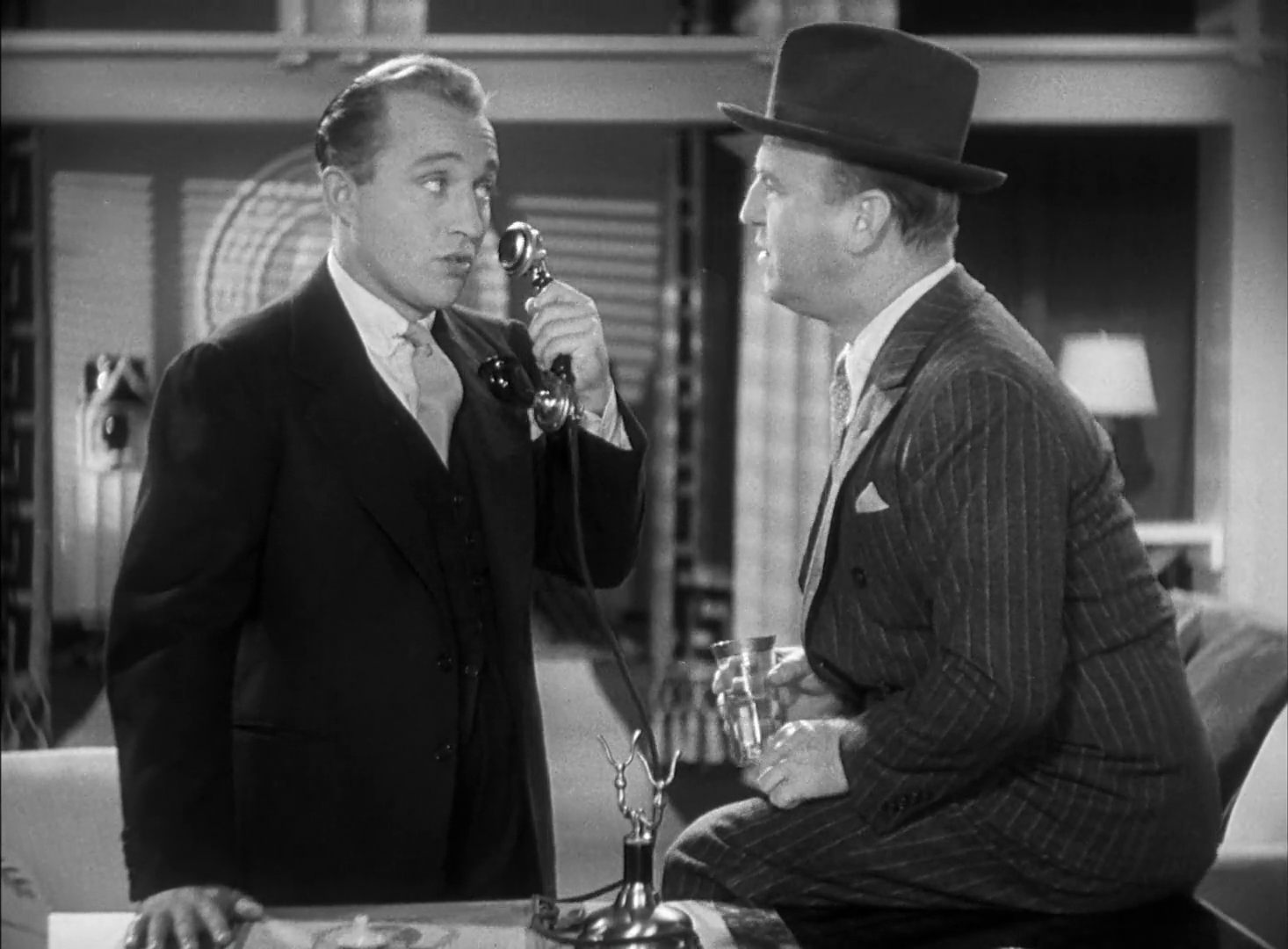
Much of the film’s second and third acts hinge specifically on Crosby’s on-screen chemistry with his leading lady, Kitty Carlisle. To be fair, I’m sure Carlisle is quite a beautiful lady but the film does her no decent service at all, resplendent in a quite hideous Russian-influenced hairstyle and daffy costume choices, although one plunging number would have certainly had the lads hootin’ and hollerin’ for glimpses of fleshy fantasy. The actress’ role is merely to act all shrew-like, aristocratically airy and indifferent to Crosby’s charms, and to a T she accomplishes this requirement with surety, and yet the glimmers of affection between the two, any kind of legitimate romantic frisson, are absent right up until the final moments. Crosby tries hard, and the other supporting players also work overtime bringing their simpering, simplistic sidebar players to life, but the film’s applaudably brief 70-minute running time prevents a more cohesive examination of the Royal family’s life. Chief among the film’s MVP’s is Roland Young as the good natured yet entirely inane Prince Nicholas, the only one among the various actors who legitimately made me chortle more than once. Alison Skipworth’s Countess Rostova is an archetypal matriarchal trope, while Reginal Owen’s Prince Vladimir is remarkably obtuse for a member of a once powerful ruling elite.
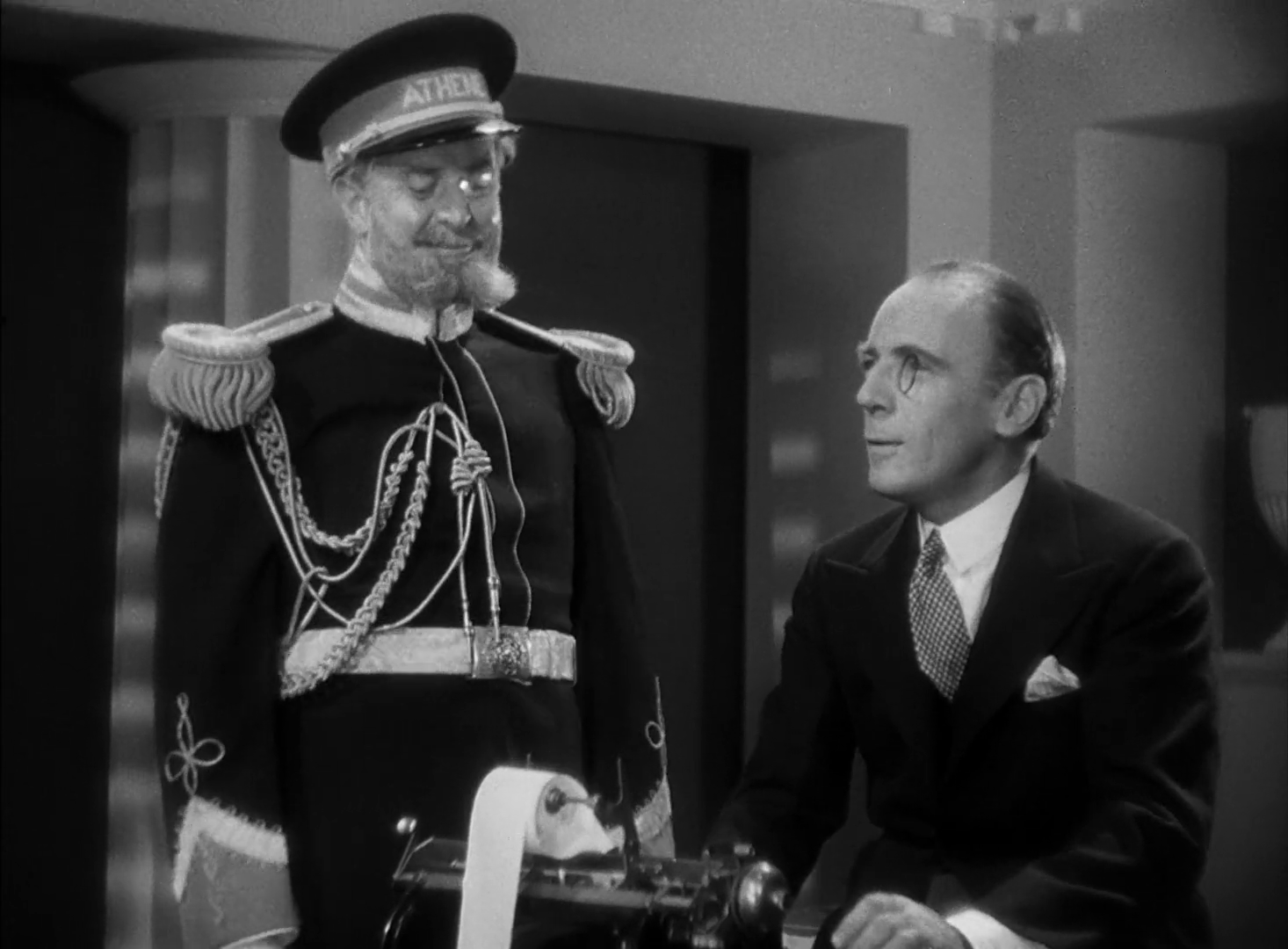
The film’s production design is eponymously “grandly bland” – much of the film occurs inside a luxurious Monaco hotel, although the sets seem cavernous there’s almost no expected ostentation at all, with wooden sets, flimsy doorframes (that occasionally wobble when people walk through the opening) and a sense of constraint that belies the opulent and extravagance both the Princess and Crosby’s Jasper Jones would be accustomed to. That said, the film is still serviceably directed, with flat pacing and generic camerawork doing the work just well enough to keep the film from being totally boring. Karl Struss’ cinematography here seems predicated on the notion of lighting everything well, and often, with few technical flourishes or surprises to be found. There is no editor credited so I am going to assume Tuttle himself did the work cutting the movie into shape, and aside from several well timed crossfades the movie isn’t all that startling with its sense of pacing. If anything, the cold open aboard a mid-Atlantic cruise is a surprise, dropping the audience right into the middle of Jasper Jones’ story, is about as non-linear as Here Is My Heart gets, but this deliberate creative choice is smothered by the eventual romantic comedy schmaltz much of Crosby’s early work produced.
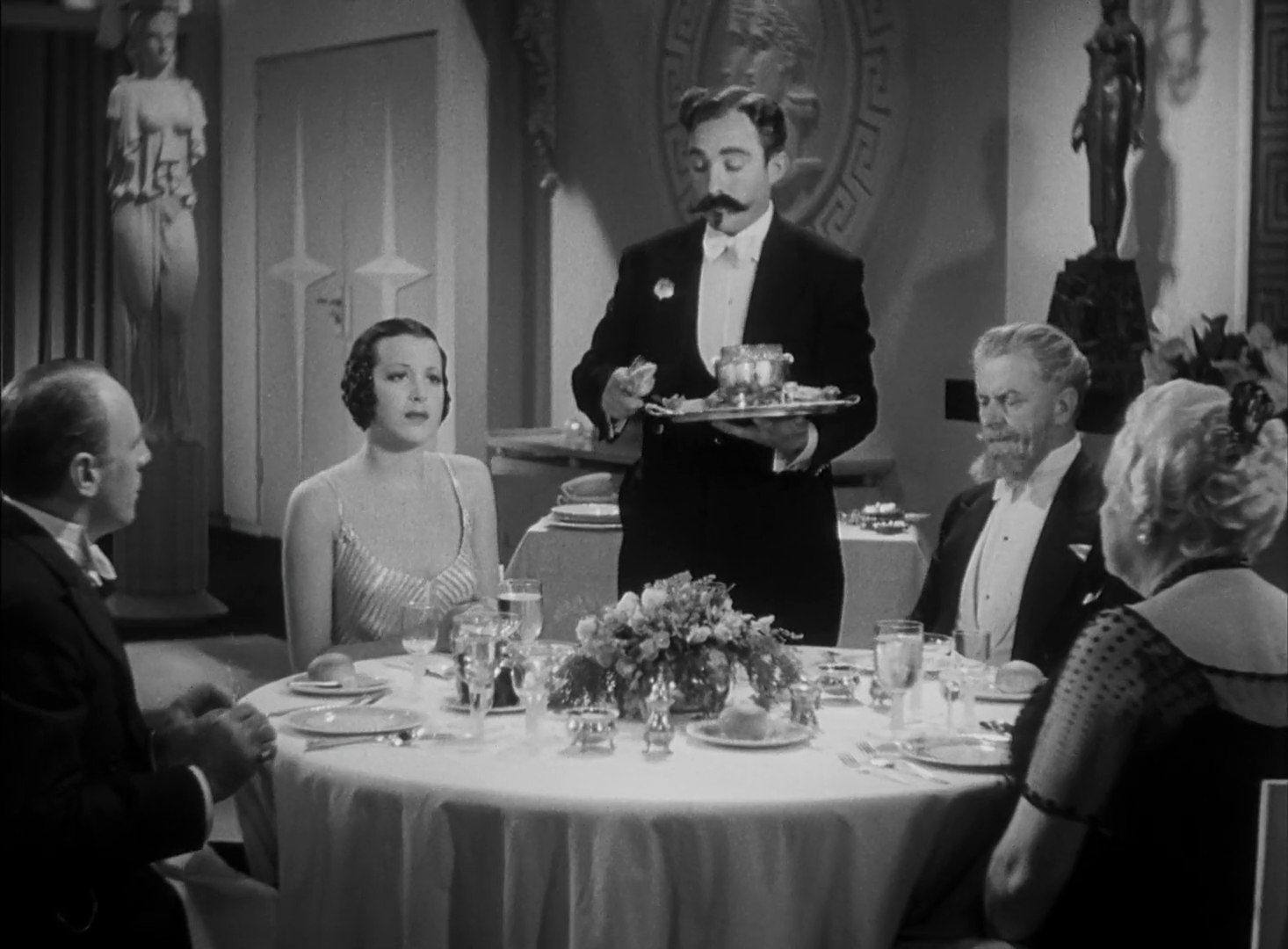
Here Is My Heart is a pleasant enough Crosby entry without the pizazz of his later films, coasting on his screen presence and affable personality without controversy or conviction. You can see the desire of the film’s genetic structure borne from the original text and in some ways the lack of genuine laughs (by contemporary standards) is disappointing, but the sense of playful fun and optimism Tuttle, Crosby and Carlisle exhibit throughout is enough to carry the day. Never quite farcical enough to compete with contemporary comedians like Laurel And Hardy or the Marx Brothers, nor cleverly written enough for sparkling dialogue to carry the paper-thin plot, Here Is My Heart’s simple pleasure is watching Crobsy do his thing without much to stop him and a supporting cast just funny enough to keep the whole thing afloat.
